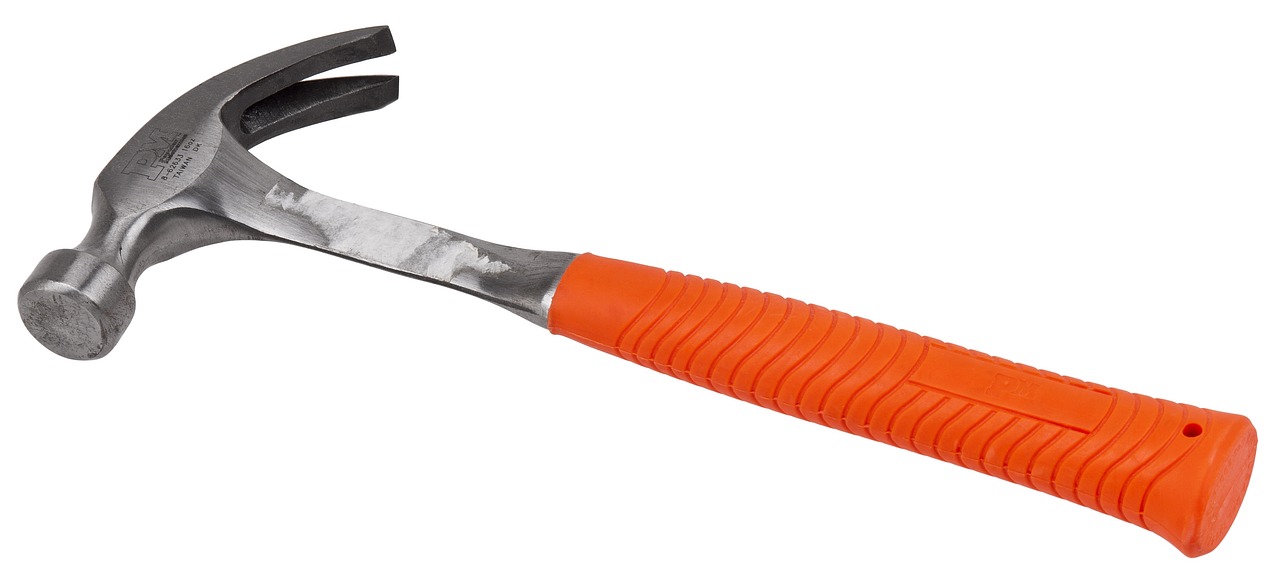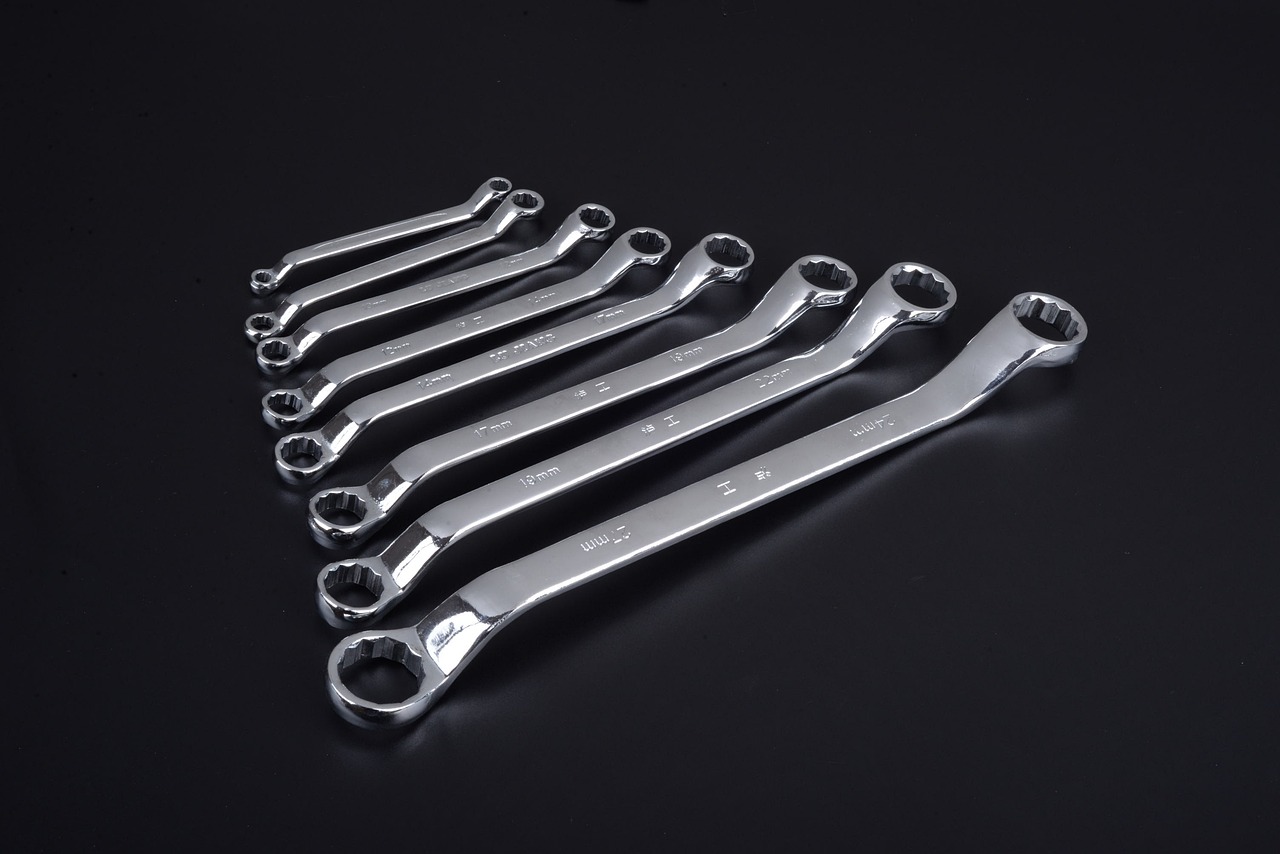How to Secure Your Crypto Assets with Hardware Wallets
In the ever-evolving world of cryptocurrency, securing your digital assets is more crucial than ever. With the rise of cyber threats and hacking incidents, many investors are turning to hardware wallets as a reliable solution. But what exactly are hardware wallets, and why should you consider using one? In this article, we will explore the importance of these devices in safeguarding your cryptocurrency investments, detailing their features, benefits, and how to choose the right one for your needs. By the end, you’ll understand why hardware wallets are becoming the go-to choice for serious investors looking to protect their wealth.
Hardware wallets are physical devices that store your cryptocurrencies securely offline. Imagine them as a safe deposit box for your digital assets, providing a fortress against hacking and unauthorized access. Unlike online wallets, which are vulnerable to cyber attacks, hardware wallets keep your private keys offline, making it nearly impossible for hackers to gain access. This added layer of security is one of the primary reasons why hardware wallets have gained popularity among serious investors who take the safety of their assets seriously.
Using hardware wallets comes with a myriad of advantages that make them a preferred choice for many. Firstly, they offer superior security. With features like PIN protection and recovery seed phrases, your assets are well-guarded against potential threats. Secondly, hardware wallets are incredibly easy to use. Most devices come with user-friendly interfaces that make managing your cryptocurrencies a breeze. Lastly, they allow you to manage multiple cryptocurrencies in one place, simplifying your investment process. Instead of juggling several wallets, you can have everything neatly organized in a single device.
When it comes to security, hardware wallets are packed with features designed to keep your digital assets safe. For instance, many devices include:
- PIN Protection: A numerical code that must be entered to access your wallet.
- Recovery Seed Phrases: A series of words that can be used to recover your wallet if it's lost or damaged.
- Encryption: Advanced algorithms that protect your data from unauthorized access.
These features work in harmony to create a robust defense against potential threats and breaches, ensuring that your investments remain secure.
Understanding the difference between cold storage and hot wallets is fundamental to choosing the best storage strategy for your assets. Cold storage refers to keeping your cryptocurrency offline, which is what hardware wallets do. On the other hand, hot wallets are connected to the internet, making them more convenient for quick transactions but also more susceptible to hacking. Think of cold storage as a bank vault—secure and protected, while hot wallets are like cash in your pocket—easily accessible but at risk of being stolen.
Another fantastic feature many hardware wallets offer is multi-signature support. This means that multiple keys are needed to authorize a transaction, adding an extra layer of security. It’s like needing several keys to open a vault—this significantly reduces the risk of theft, as a single compromised key won’t be enough to access your funds.
The user experience of hardware wallets can vary significantly. Some devices boast intuitive interfaces that even beginners can navigate with ease, while others may require a steeper learning curve. It’s essential to evaluate usability, especially if you plan to manage a diverse portfolio of cryptocurrencies. A wallet that is difficult to use can lead to mistakes, potentially putting your assets at risk. Therefore, before making a purchase, consider testing the interface or reading reviews to ensure it meets your needs.
When it comes to selecting the right hardware wallet, a few factors should guide your decision. Start by considering the security features you need, such as encryption and multi-signature support. Next, look at the supported cryptocurrencies—not all wallets support every coin, so make sure your preferred assets are included. Additionally, consider the price of the wallet; while some may seem pricey, remember that investing in security is investing in peace of mind. Lastly, check user reviews to gauge the experiences of others. This research can help you find the best fit for your investment strategy.
Several brands dominate the hardware wallet market, each offering unique features and benefits. Here are a few notable ones:
| Brand | Features | Price Range |
|---|---|---|
| Ledger | Multi-currency support, Bluetooth connectivity | $59 - $249 |
| Trezor | User-friendly interface, strong security features | $69 - $219 |
| KeepKey | Large display, easy-to-use | $49 |
Researching these brands can help you make an informed decision based on your needs and preferences.
While some hardware wallets are more expensive than others, it’s crucial to weigh the cost against the security benefits they provide. Remember, investing in a quality hardware wallet is akin to purchasing insurance for your investments. The peace of mind that comes from knowing your assets are secure is invaluable. So, don’t just go for the cheapest option; consider what features you truly need and find a wallet that offers the best value for your investment.
Q: Are hardware wallets completely secure?
A: While no system is infallible, hardware wallets offer a significantly higher level of security than online wallets, especially when used correctly.
Q: Can I use a hardware wallet for multiple cryptocurrencies?
A: Yes, most hardware wallets support a variety of cryptocurrencies, allowing you to manage different assets in one place.
Q: What happens if I lose my hardware wallet?
A: If you lose your wallet, you can recover your assets using the recovery seed phrase provided during setup, as long as you have kept it secure.

Understanding Hardware Wallets
When it comes to securing your cryptocurrency investments, understanding hardware wallets is crucial. These are not just any ordinary devices; they are specialized tools designed to keep your digital assets safe from the ever-evolving threats in the online world. Imagine hardware wallets as a highly secure vault where your cryptocurrencies can rest peacefully, away from prying eyes and malicious hackers. Unlike software wallets, which are connected to the internet and vulnerable to attacks, hardware wallets store your private keys offline, making them significantly less susceptible to unauthorized access.
So, what exactly are hardware wallets? In simple terms, they are physical devices that look similar to USB drives. They enable you to manage your cryptocurrencies securely, allowing you to send and receive funds while keeping your private keys safe. The beauty of these wallets lies in their offline functionality. Even if your computer is compromised, your crypto assets remain secure within the hardware wallet. This is akin to keeping your cash in a safe rather than in your wallet, where it can easily be stolen.
One of the standout features of hardware wallets is their ability to support multiple cryptocurrencies. Most models come equipped with software that allows you to manage various digital currencies in one place. This means you can hold Bitcoin, Ethereum, Litecoin, and many others without needing separate wallets for each. It's a convenient way to keep your investments organized and accessible.
Furthermore, hardware wallets come with a variety of security features that make them a preferred choice among serious investors. For instance, they typically include:
- PIN Protection: A security code that you must enter to access your wallet, adding a layer of protection against unauthorized access.
- Recovery Seed Phrases: A set of words that can be used to recover your wallet if it gets lost or damaged.
- Encryption: Advanced cryptographic techniques that protect your data from potential breaches.
By combining these features, hardware wallets provide a robust defense against potential threats. They are designed for users who prioritize security and are serious about protecting their investments. However, it's essential to choose a reputable brand and model, as not all hardware wallets offer the same level of security and usability.
In summary, understanding hardware wallets is the first step toward securing your cryptocurrency assets. They offer a blend of convenience and superior security, making them an indispensable tool for anyone serious about investing in digital currencies. As you delve deeper into the world of cryptocurrencies, investing in a hardware wallet might just be one of the best decisions you make.

Benefits of Using Hardware Wallets
When it comes to securing your precious cryptocurrency investments, hardware wallets stand out as a beacon of safety. These nifty devices offer a plethora of benefits that make them a top choice for both novice and seasoned investors. First and foremost, the superior security that hardware wallets provide is unmatched. Unlike hot wallets, which are constantly connected to the internet and vulnerable to hacking attempts, hardware wallets store your digital assets offline. This means that even if your computer is compromised, your cryptocurrencies remain safe and sound, locked away in their digital vault.
Another significant advantage is the ease of use that many hardware wallets offer. Most devices come with user-friendly interfaces that allow you to manage your assets with just a few clicks. Imagine having all your cryptocurrencies neatly organized in one place, making it easy to track your investments and execute transactions without the hassle of navigating through multiple platforms. This simplicity not only saves time but also reduces the chances of making costly mistakes.
Moreover, hardware wallets support a wide range of cryptocurrencies, which means you can manage various assets without needing multiple wallets. This feature is particularly beneficial for those who have diversified their portfolios across different coins. With a single hardware wallet, you can access, send, and receive various cryptocurrencies, streamlining your investment process.
Now, let’s talk about some of the enhanced security features that hardware wallets incorporate. Most devices come equipped with:
- PIN protection: This adds a layer of security by requiring a personal identification number to access your wallet.
- Recovery seed phrases: In case of loss or damage, these phrases allow you to restore your wallet and regain access to your assets.
- Encryption: This ensures that your data is securely stored and inaccessible to unauthorized users.
When comparing hardware wallets to hot wallets, it's essential to understand the distinction between cold storage and hot wallets. Cold storage refers to keeping your cryptocurrencies completely offline, while hot wallets are always connected to the internet. The latter can be convenient for frequent trading, but they also pose a higher risk of cyberattacks. By opting for a hardware wallet, you are essentially choosing to keep your assets in a safe, offline environment, minimizing the risk of theft.
Another noteworthy feature is the multi-signature support that many hardware wallets offer. This means that more than one key is required to authorize a transaction, adding an extra layer of security. This is particularly useful for businesses or individuals managing significant amounts of cryptocurrency, as it reduces the risk of unauthorized access and theft.
In conclusion, the benefits of using hardware wallets are clear. From top-notch security features to user-friendly interfaces and support for multiple cryptocurrencies, they provide an all-in-one solution for managing your digital assets. By investing in a hardware wallet, you are taking a proactive step toward safeguarding your financial future in the ever-evolving world of cryptocurrency.

Enhanced Security Features
When it comes to securing your crypto assets, hardware wallets stand out due to their robust security features. These devices are designed with a primary goal in mind: to protect your digital currency from unauthorized access and potential theft. One of the most critical features is PIN protection. This means that each time you access your wallet, you’ll need to enter a unique PIN. It's like having a security guard at the entrance of a vault—only those with the right code can get in.
Another essential feature is the use of recovery seed phrases. When you set up a hardware wallet, you’re given a series of words—usually 12 to 24—that act as a backup. Think of it as a secret map to your treasure. If you ever lose your wallet or it gets damaged, you can restore your access to your cryptocurrencies using this phrase. However, it’s vital to keep this phrase secure and private, as anyone with access to it can control your funds.
Encryption is also a cornerstone of hardware wallet security. The data stored on these devices is encrypted, meaning that even if someone physically steals your wallet, they won’t be able to access your funds without the necessary PIN and recovery phrase. This multi-layered approach to security is what makes hardware wallets a fortress for your digital assets.
Moreover, many hardware wallets offer multi-signature support. This feature requires multiple keys to authorize a transaction, which adds an extra layer of security. Imagine needing a group of trusted friends to unlock a treasure chest; this way, even if one key is compromised, your assets remain safe. This is particularly useful for businesses or individuals with large amounts of cryptocurrency, as it significantly reduces the risk of theft.
In summary, the enhanced security features of hardware wallets—such as PIN protection, recovery seed phrases, encryption, and multi-signature support—work together to create a secure environment for your crypto investments. By understanding and utilizing these features, you can rest easy knowing that your digital assets are well-protected.
- What is a hardware wallet? A hardware wallet is a physical device that securely stores your cryptocurrencies offline, protecting them from hacking and theft.
- How does PIN protection work? Each time you access your hardware wallet, you must enter a unique PIN to unlock it, adding a layer of security against unauthorized access.
- What is a recovery seed phrase? It is a series of words provided during the wallet setup that can be used to restore access to your cryptocurrencies if your wallet is lost or damaged.
- What is multi-signature support? This feature requires multiple keys to authorize a transaction, enhancing security by ensuring that no single person has complete control over the funds.

Cold Storage vs. Hot Wallets
When it comes to securing your cryptocurrency assets, understanding the difference between cold storage and hot wallets is crucial. Think of it this way: cold storage is like a bank vault, while hot wallets are more akin to your wallet that you carry around every day. Cold storage refers to keeping your cryptocurrencies offline, which significantly reduces the risk of hacking and unauthorized access. This method is often preferred by serious investors who want to ensure their assets are safe from online threats.
On the other hand, hot wallets are connected to the internet, making them more convenient for everyday transactions. They allow for quick access and easy trading, but this convenience comes at a cost: increased vulnerability to cyber attacks. Imagine having your cash in a wallet that you can easily reach for at any moment, but also one that could be snatched away in an instant. That’s the trade-off you face with hot wallets.
To illustrate the differences further, let’s break it down into a simple comparison:
| Feature | Cold Storage | Hot Wallets |
|---|---|---|
| Security | High - Offline storage | Moderate - Online storage |
| Accessibility | Low - Requires physical access | High - Instant access |
| Usability | Less user-friendly | Very user-friendly |
| Best For | Long-term holding | Frequent trading |
Ultimately, the choice between cold storage and hot wallets boils down to your individual needs and investment strategy. If you’re planning to hold your cryptocurrencies long-term without frequent transactions, cold storage is likely the best route. However, if you’re an active trader who values speed and convenience, a hot wallet may be more suitable. It’s essential to evaluate your risk tolerance and how often you plan to access your assets before making a decision.
- What is cold storage? Cold storage refers to keeping your cryptocurrency assets offline, making them less susceptible to hacking.
- What is a hot wallet? A hot wallet is an online wallet that allows for quick access to your cryptocurrencies, but it carries higher risks.
- Which is safer, cold storage or hot wallets? Cold storage is generally considered safer due to its offline nature.
- Can I use both cold storage and hot wallets? Absolutely! Many investors use a combination of both for security and convenience.

Multi-Signature Support
When it comes to securing your cryptocurrency, is a game changer. Imagine you have a vault that requires not just one key, but several keys to open it. This is essentially what multi-signature wallets do for your digital assets. Instead of relying on a single private key to authorize transactions, multi-signature wallets require multiple keys from different sources to approve any transaction. This means that even if one key is compromised, your assets remain safe, as the other keys are still needed to access the wallet.
This feature is particularly beneficial for businesses or individuals who manage large amounts of cryptocurrency. For example, in a corporate setting, a company might require that at least two out of three executives sign off on any transaction before it's executed. This not only adds a layer of security but also promotes accountability. Imagine how much safer your investments would feel knowing that no single person has the power to drain your wallet without consensus!
Additionally, multi-signature wallets can mitigate risks associated with loss or theft. If you accidentally lose one of your keys, you can still access your funds with the remaining keys. This redundancy is crucial for anyone who takes their investments seriously. Many hardware wallets now offer this feature, making it easier than ever to implement a robust security strategy for your cryptocurrency.
However, it's important to note that while multi-signature wallets enhance security, they also introduce a level of complexity. Users need to be aware of how to set up and manage multiple keys effectively. Some wallets provide user-friendly interfaces to facilitate this process, while others might require a bit of a learning curve. Therefore, it's essential to choose a wallet that aligns with your technical comfort level.
In conclusion, adopting a multi-signature approach can significantly bolster the security of your crypto assets, allowing you to sleep easier at night. Just remember, with great power comes great responsibility. Make sure to keep your keys secure and understand the implications of using a multi-signature wallet before diving in.
- What is a multi-signature wallet? A multi-signature wallet is a type of cryptocurrency wallet that requires multiple private keys to authorize a transaction, enhancing security.
- How does multi-signature support improve security? It requires multiple approvals for transactions, making it difficult for unauthorized users to access your funds even if one key is compromised.
- Can I lose access to my funds with a multi-signature wallet? If you lose one key, you can still access your funds as long as you have the required number of keys to authorize transactions.
- Are all hardware wallets multi-signature compatible? No, not all hardware wallets support multi-signature functionality, so it's important to check this feature when choosing a wallet.

User Experience and Interface
When it comes to hardware wallets, user experience and interface design can make or break your cryptocurrency management journey. Imagine trying to navigate a complex maze when all you want is to get to the other side; that’s how some hardware wallets can feel if they lack a user-friendly interface. The best hardware wallets prioritize simplicity and ease of use, allowing both beginners and seasoned investors to manage their assets with confidence.
A great user interface (UI) is like a well-organized toolbox: everything you need is right at your fingertips, making your tasks easier and more efficient. Look for wallets that feature intuitive layouts, clear instructions, and responsive buttons. Some wallets even come with mobile apps that sync seamlessly with the hardware device, providing a smooth experience whether you're at home or on the go.
One of the key aspects of user experience is the setup process. A complicated setup can deter users, especially those new to crypto. Ideally, a hardware wallet should guide you through the initial setup with clear prompts and helpful tips. Additionally, consider how the wallet handles transactions. Does it require multiple steps to send or receive crypto? A streamlined process can save you time and reduce frustration, making your investment experience more enjoyable.
Another crucial factor is the customer support provided by the wallet manufacturer. Even the most intuitive devices can run into issues, so having access to responsive and knowledgeable support can be a lifesaver. Look for brands that offer comprehensive FAQs, live chat options, or even instructional videos. This support can enhance your overall experience and help you feel more secure in your investment.
To help you understand the differences in user experience among various wallets, here’s a quick comparison table of some popular hardware wallets based on their user interface features:
| Wallet Brand | User Interface | Setup Process | Customer Support |
|---|---|---|---|
| Trezor | Intuitive and clean | Easy to navigate | 24/7 support available |
| Ledger | Functional but slightly complex | Moderate difficulty | Extensive online resources |
| KeepKey | User-friendly with large display | Very simple | Email support only |
In conclusion, choosing a hardware wallet that offers a superb user experience and a friendly interface is essential for effective asset management. Remember, the easier it is to use your wallet, the more time you can spend focusing on what really matters—growing your investments and enjoying the journey.
- What is a hardware wallet? A hardware wallet is a physical device that securely stores your cryptocurrencies offline, protecting them from online threats.
- How do I set up a hardware wallet? Most hardware wallets come with a user manual or setup guide. Typically, you’ll need to connect the device to your computer or mobile device, create a PIN, and write down your recovery seed phrase.
- Are hardware wallets safe? Yes, hardware wallets are considered one of the safest ways to store cryptocurrencies because they keep your private keys offline and away from hackers.
- Can I use a hardware wallet for multiple cryptocurrencies? Many hardware wallets support multiple cryptocurrencies, allowing you to manage various assets in one place.
- What should I do if I lose my hardware wallet? If you lose your hardware wallet, you can recover your funds using your recovery seed phrase, provided you have kept it secure and private.

Choosing the Right Hardware Wallet
When it comes to , the decision can feel a bit overwhelming. With so many options on the market, how do you know which one is the best fit for your needs? First, it's essential to consider your specific requirements. Are you a casual investor, or do you hold a significant amount of cryptocurrency? The answer to this question can greatly influence your choice.
One of the primary factors to evaluate is the security features that each wallet offers. Look for wallets that provide PIN protection, two-factor authentication, and a recovery seed phrase. These features work together to ensure that even if your device is lost or stolen, your assets remain secure. Additionally, it's wise to check if the wallet supports multi-signature functionality, which requires multiple keys to authorize transactions, adding an extra layer of protection.
Next, consider the supported cryptocurrencies. Not all hardware wallets support every cryptocurrency. If you have a diverse portfolio, make sure the wallet you choose can accommodate all of your assets. Some wallets are designed specifically for certain coins, while others are more versatile. A quick glance at the wallet's specifications or a visit to their website can provide this information.
Another important aspect is the user experience. Some hardware wallets are incredibly user-friendly, featuring intuitive interfaces that make managing your assets a breeze. Others may have a steeper learning curve, which could be frustrating for those who are not tech-savvy. Before making a purchase, consider reading user reviews to gauge the experiences of others. A wallet that is easy to use can save you time and stress in the long run.
Finally, budget considerations should play a role in your decision-making process. While it might be tempting to go for the cheapest option, remember that investing in a high-quality hardware wallet can pay off in terms of security and peace of mind. Compare prices and features, and don't hesitate to invest a little more for a wallet that offers robust security features and excellent customer support.
In summary, choosing the right hardware wallet involves a careful evaluation of security features, supported cryptocurrencies, user experience, and price. By taking the time to research and compare different options, you can find a wallet that not only meets your needs but also provides you with the confidence to manage your crypto assets securely.
- What is a hardware wallet? A hardware wallet is a physical device used to store cryptocurrencies securely offline, protecting them from online threats.
- Are hardware wallets safe? Yes, hardware wallets are considered one of the safest ways to store cryptocurrencies due to their offline storage and advanced security features.
- Can I use a hardware wallet for multiple cryptocurrencies? Many hardware wallets support multiple cryptocurrencies, but it's essential to check the specifications before purchasing.
- What should I do if I lose my hardware wallet? Most hardware wallets come with a recovery seed phrase that allows you to restore your assets if your device is lost or stolen.

Top Hardware Wallet Brands
When it comes to securing your crypto assets, choosing the right hardware wallet is crucial. There are several top brands in the market that have established themselves as leaders due to their reliability, security features, and user-friendly interfaces. Let's dive deeper into some of these brands and what makes them stand out.
One of the most recognized names in the hardware wallet space is Ledger. Known for its robust security features, Ledger wallets, such as the Ledger Nano S and Ledger Nano X, offer excellent protection for your digital currencies. These devices utilize a secure element chip, which is the same technology used in credit cards and passports, to keep your assets safe. Additionally, Ledger wallets support a wide range of cryptocurrencies, making them versatile for diverse portfolios.
Another major player is Trezor. Trezor was one of the first hardware wallets on the market and remains a popular choice among investors. The Trezor One and Trezor Model T provide a simple yet effective way to manage your crypto. With features like a recovery seed and a user-friendly interface, Trezor makes it easy to secure your assets. Plus, their open-source nature allows for transparency and community audits, which adds an extra layer of trust.
Moving on, we have KeepKey, which is often praised for its sleek design and ease of use. While it may not support as many cryptocurrencies as Ledger or Trezor, KeepKey offers a unique integration with the ShapeShift platform, allowing users to trade cryptocurrencies directly from their wallet. This feature can be particularly appealing for those who want to manage their assets and trade without leaving the hardware wallet environment.
Lastly, SafePal is gaining traction in the crypto community. This wallet is known for its affordability and mobile-friendly design. SafePal supports a vast number of cryptocurrencies and has a built-in exchange feature, making it a great option for those who prefer to manage their assets on the go. Its integration with DeFi platforms also allows users to access various decentralized finance services directly from the wallet.
To help you compare these brands, here's a quick overview of their key features:
| Brand | Key Models | Security Features | Supported Cryptocurrencies |
|---|---|---|---|
| Ledger | Ledger Nano S, Ledger Nano X | Secure Element Chip, PIN protection | Over 1,800 |
| Trezor | Trezor One, Trezor Model T | Recovery Seed, Open-source | Over 1,600 |
| KeepKey | KeepKey | Recovery Seed, ShapeShift integration | Over 40 |
| SafePal | SafePal S1 | Secure Enclave, Mobile App | Over 10,000 |
Ultimately, the choice of a hardware wallet should align with your individual needs and investment strategy. Whether you prioritize security, ease of use, or the range of supported cryptocurrencies, there is a hardware wallet out there that fits your criteria. Remember, investing in a hardware wallet is not just about securing your assets; it’s about giving you peace of mind in a volatile market.
- What is a hardware wallet?
A hardware wallet is a physical device that securely stores your cryptocurrency offline, protecting it from online threats.
- Are hardware wallets safe?
Yes, hardware wallets are considered one of the safest ways to store cryptocurrencies as they keep your private keys offline.
- Can I use a hardware wallet for multiple cryptocurrencies?
Most hardware wallets support a wide range of cryptocurrencies, allowing you to manage different assets in one place.
- What happens if I lose my hardware wallet?
As long as you have your recovery seed phrase, you can restore your assets on a new device.

Budget Considerations
When diving into the world of hardware wallets, one of the most pressing questions on every investor's mind is, "How much should I spend?" It's a valid concern because, let's face it, in the realm of cryptocurrency, every dollar counts. Hardware wallets can range from budget-friendly options to premium devices that come with a hefty price tag. But before you rush into buying the first wallet you come across, it’s essential to consider what you’re really getting for your money.
First and foremost, think about your investment strategy. If you’re someone who plans to hold a significant amount of cryptocurrency for the long term, investing in a more expensive hardware wallet might be worthwhile. These wallets often come with advanced security features that can offer peace of mind against hacks and theft. On the other hand, if you're just starting out or only dabbling in small amounts of crypto, a budget-friendly option might suffice. Remember, though, that going for the cheapest option could expose you to potential risks.
Here’s a quick breakdown of what you can typically expect at varying price points:
| Price Range | Typical Features | Best For |
|---|---|---|
| Under $50 | Basic security, limited cryptocurrency support | Beginners or small investors |
| $50 - $150 | Enhanced security features, multi-currency support | Casual investors |
| Above $150 | Top-notch security, user-friendly interface, premium features | Serious investors or those with large holdings |
In addition to the initial purchase price, consider any ongoing costs that might arise. Some hardware wallets may have fees for firmware updates or additional features. Always read the fine print and understand what you're committing to financially. It's also wise to check for warranty options; a good warranty can save you money in the long run if something goes wrong.
Ultimately, your choice should align with your personal financial situation and your cryptocurrency investment goals. Investing in a hardware wallet is not just about securing your assets; it's about finding a balance between cost and security. So, take your time, do your research, and choose wisely—your future self will thank you.
- What is a hardware wallet? A hardware wallet is a physical device designed to securely store cryptocurrencies offline, protecting them from online threats.
- Are hardware wallets worth the investment? Yes, especially if you hold a significant amount of cryptocurrency. They offer enhanced security that online wallets cannot match.
- Can I use a hardware wallet for multiple cryptocurrencies? Most hardware wallets support multiple cryptocurrencies, allowing you to manage various assets from one device.
- How do I choose the right hardware wallet? Consider factors such as security features, supported cryptocurrencies, user reviews, and your budget.
Frequently Asked Questions
- What is a hardware wallet?
A hardware wallet is a physical device that securely stores your cryptocurrency offline. It provides a high level of security against hacking and unauthorized access, making it a preferred choice for serious investors looking to protect their digital assets.
- How does a hardware wallet enhance security?
Hardware wallets enhance security through features like PIN protection, recovery seed phrases, and encryption. These elements work together to protect your assets from potential threats, ensuring that only you have access to your funds.
- What's the difference between cold storage and hot wallets?
Cold storage refers to keeping your cryptocurrencies offline, while hot wallets are connected to the internet. Cold storage is generally considered safer, as it reduces the risk of online hacking, whereas hot wallets offer more convenience for frequent transactions.
- What is multi-signature support in hardware wallets?
Multi-signature support requires multiple keys to authorize a transaction, adding an extra layer of security. This means that even if one key is compromised, your assets remain safe, as multiple approvals are needed to access or transfer funds.
- How do I choose the right hardware wallet for my needs?
Choosing the right hardware wallet involves considering factors like security features, supported cryptocurrencies, user experience, and price. Researching user reviews and comparing different models can help you find the best fit for your investment strategy.
- Are all hardware wallets compatible with every cryptocurrency?
No, not all hardware wallets support every cryptocurrency. It's important to check the list of supported cryptocurrencies for any wallet you are considering to ensure it meets your needs.
- How much should I expect to spend on a hardware wallet?
Prices for hardware wallets can vary significantly. While some are more expensive, it’s essential to weigh the cost against the security features they offer. Investing in a reliable hardware wallet can provide peace of mind and protect your assets in the long run.
- Can I use a hardware wallet on multiple devices?
Yes, most hardware wallets can be used with multiple devices. They typically connect via USB or Bluetooth, allowing you to manage your assets from different computers or mobile devices while keeping your private keys secure.



















